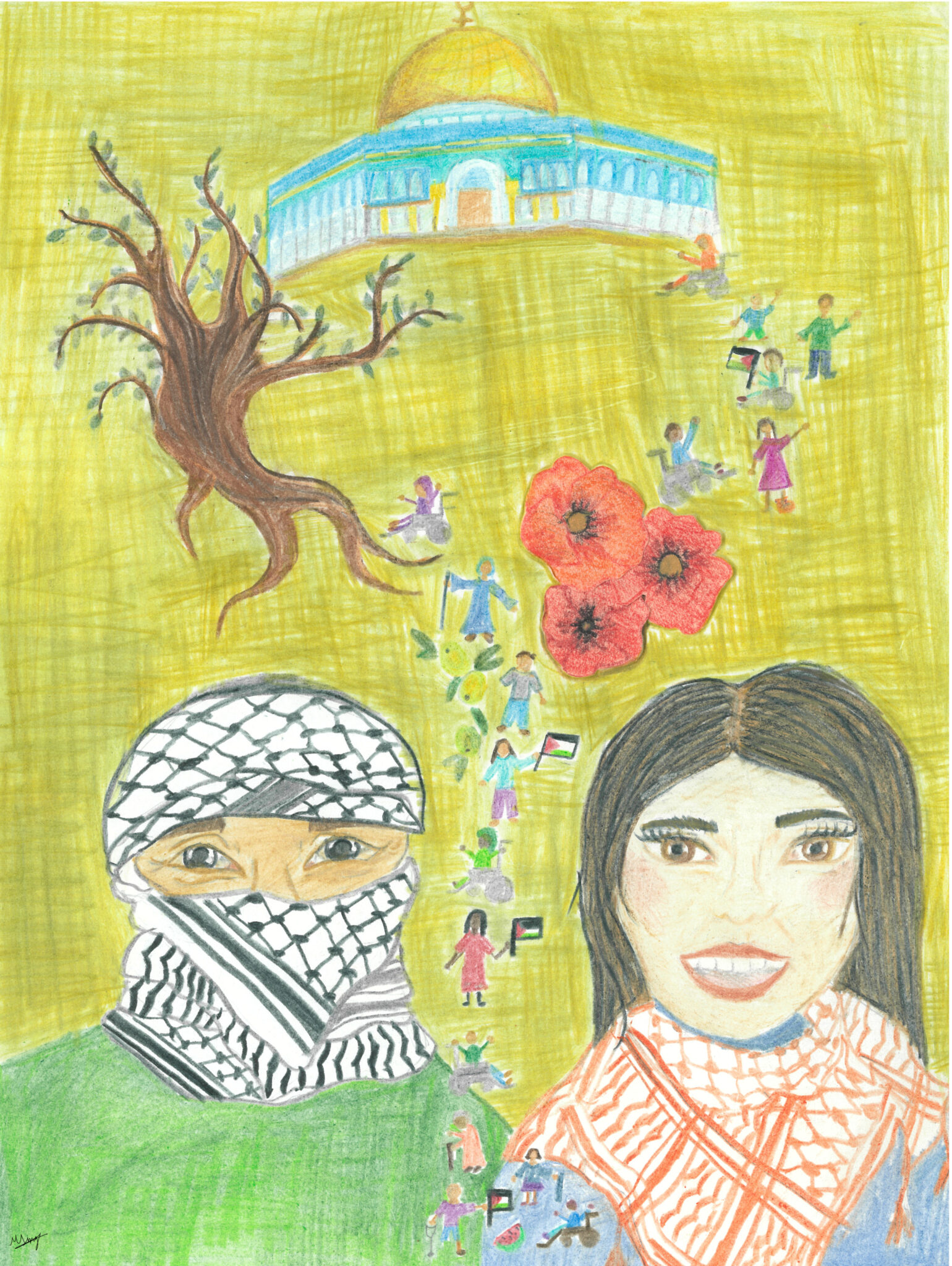We hope that you are doing well dear reader. Enjoy this edition of Disabled Honi on liberation for all.
Our front cover by Mahima Singh is an expression of solidarity between disability justice and Palestinian liberation. Our collective liberation will not come without standing together in solidarity with Palestine.
We also invite you, our readers, to our back cover, a rallying cry for everyone to join our solidarity encampment with Palestine demanding the severance of ties between the University of Sydney and Israel, not least Israel’s universities. Universities are not neutral ivory towers, universities are complicit. Our universities must end all support for Israel’s educational institutions and end all contracts with defense firms which has contributed to the genocide unfolding in Gaza.
Similarly, our art on pages 12-13 takes inspiration from poetry inscribed on the timber walls of Vietnam’s Hall of Supreme Harmony (Điện Thái Hòa), featuring two poems in Arabic by two exemplary Palestinian poets: Mahmoud Darwish’s ‘I am from there’ and Hiba Abu Nada’s ‘Seven skies for the Homeland’ etched in gold. Darwish’s dream for peace and love for the land of a ‘bounty of birds’ and the ‘immortal olive tree’ is a powerful one
Yes, this is Disabled Honi. But it is not a ‘normal’ Disabled Honi, if that ever was the case.
We examined the systemic failure of NSW universities’ when it comes to facilitating access to Transport NSW’s disability concession after hearing from multiple stories of students missing out on cheaper fares. We also reached out to the current USU candidates on their vision for what a disabilities-inclusive USU looks like and analysed their responses.
Ellie Taylor’s easy-read story: ‘Invisible and under 70’ is a powerful narrative on learning to belong in our community as a proudly dyslexic, autistic, and invisibly disabled person. Another piece that, we hope, will spark deeper thought is Pooja Kudva’s perspective on the barriers behind obtaining a medical diagnosis and the internal conversations this should provoke.
We extend our heartfelt thanks to all of our editors, writers, artists, and contributors. Without your endless patience, we will not be able to put together this edition.
In solidarity,
The Editors of Disabled Honi





